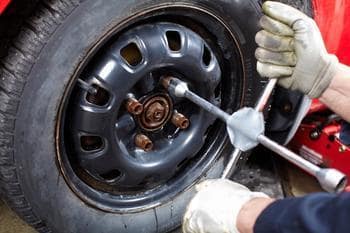Checkpoint Info
Warning of a loose wheel nut

It is recognised by the industry that the incidence and possibility of wheel nut loosening is at its greatest immediately after a tyre has been replaced or a wheel has been changed.
The incorporation of Checkpoint gives an immediate on the road warning of a loose wheel nut and identifies the wheel requiring attention.


Additional spin off benefits using Checkpoint arise from the products’ heat sensitivity, excess heat build up, for example, from a binding brake, bad driving habits, or worn bearings will be indicated by the Checkpoint distorting. Checkpoints begin to melt at 120°C.

Further substantial budget cost savings are available to fleet management with the fitting of Checkpoint. On average a torque check will take 20-30 minutes of workshop time. The fitting of Checkpoint eliminates unnecessary scheduled re-torquing, where fleet management has the daily "walk round" check procedure in place. Re-torquing the wheel nuts too often can lead to elongation of the stud, which can cause the nut to bottom on the thread giving false torque readings.


Checkpoints are available in a wide range of sizes to cater for Transport, Agriculture, Mining and Engineering vehicles.
